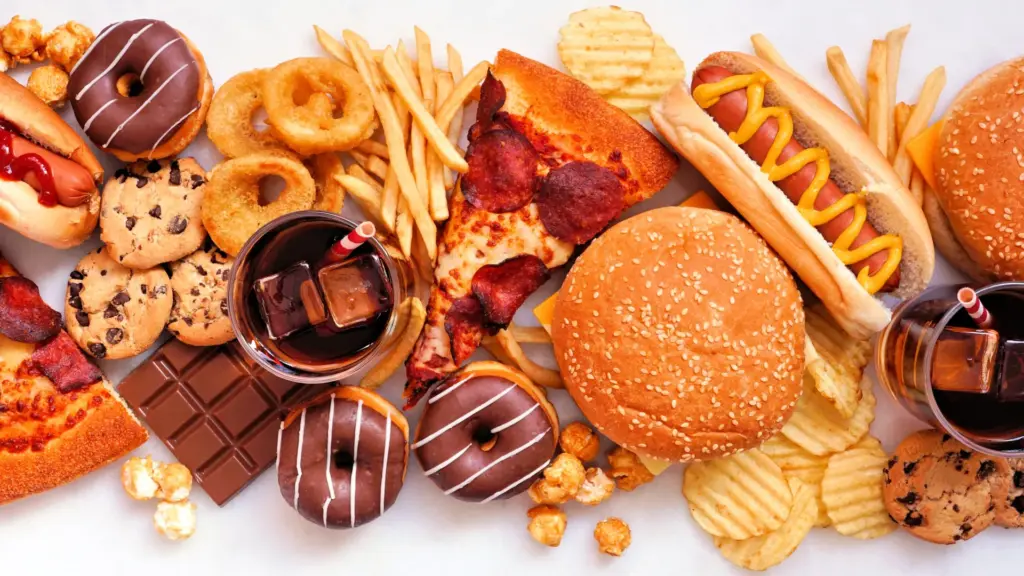Ultra-processed foods (UPFs) are everywhere. From convenient snacks to seemingly healthy options at the grocery store, these foods are a significant part of the modern diet. But are they silently harming our health? A new scientific advisory from the American Heart Association sheds light on the concerning link between UPFs and serious cardiometabolic issues, prompting a crucial conversation about our eating habits and the future of food production.
This blog post delves into the details of the American Heart Association’s findings, explaining what UPFs are, how they affect our bodies, and what we can do to mitigate the risks they pose. We’ll explore the science behind the concerns, debunk common misconceptions, and offer actionable steps for making healthier choices.
What are Ultra-Processed Foods? 🤔
Ultra-processed foods are multi-ingredient products made using industrial processes not typically used in home cooking. These processes often involve additives to enhance shelf life, appearance, flavor, or texture. Think of things like artificial sweeteners, preservatives, and emulsifiers.
The Nova classification system, widely used to categorize foods, defines UPFs based on the extent and purpose of industrial processing. However, it’s important to note that the Nova system doesn’t inherently judge nutritional value; some UPFs might be relatively healthy, while others are undeniably unhealthy.
Examples of UPFs include sugar-sweetened beverages, processed meats, refined grains, candy, and commercially baked goods. While some commercially produced whole grains or low-fat dairy products might fall under the UPF umbrella, the vast majority of UPFs are high in saturated fat, added sugars, and sodium (HFSS), contributing to excessive calorie intake.
The Health Risks of UPFs 💔
The American Heart Association’s advisory highlights a strong link between high UPF consumption and an increased risk of various cardiometabolic problems. Studies show a significant correlation between UPF intake and a higher likelihood of heart attack, stroke, type 2 diabetes, obesity, and overall mortality.
A meta-analysis revealed a dose-response relationship: the more UPFs consumed, the greater the risk. This suggests that even moderate consumption of these foods might have negative consequences over time.
Beyond the poor nutritional profile, some researchers suggest that certain additives and processing techniques themselves might contribute to negative health effects. For instance, artificial flavors that mimic sweetness without the nutritional value of natural sugars can disrupt eating habits and lead to weight gain.
How Common is UPF Consumption? 📊
The prevalence of UPF consumption in the United States is alarming. A CDC report indicates that approximately 55% of the calories consumed by Americans aged 1 and older come from UPFs. This figure rises to nearly 62% among youth (1-18 years old).
This high consumption rate is concerning, particularly given the disproportionate impact on lower-income families, who tend to consume a higher percentage of UPFs due to their affordability and accessibility.
The aggressive marketing of UPFs, especially toward youth and marginalized communities, further exacerbates the issue, often displacing healthier, more nutritious food options.
The American Heart Association’s Recommendations ❤️
The American Heart Association’s advisory strongly recommends reducing the intake of most UPFs, particularly those high in HFSS. They urge a shift toward a diet rich in whole, unprocessed foods such as fruits, vegetables, whole grains, legumes, nuts, seeds, and lean proteins.
The advisory also emphasizes the need for multi-pronged strategies, including policy changes like front-of-package labeling to make it easier for consumers to identify and avoid HFSS products.
Furthermore, increased research funding is crucial to better understand the specific mechanisms by which UPFs impact health and to develop effective strategies for reducing their consumption.
Key Takeaways 🔑
- High consumption of ultra-processed foods is linked to increased risks of heart disease, stroke, type 2 diabetes, obesity, and mortality.
- UPFs often contain high levels of saturated fat, added sugars, and sodium (HFSS).
- The American Heart Association recommends reducing UPF consumption and increasing intake of whole, unprocessed foods.
- More research is needed to fully understand the health impacts of UPFs and their additives.
- Policy changes, such as front-of-package labeling, are needed to support healthier dietary choices.
In conclusion, the evidence strongly suggests that reducing our consumption of ultra-processed foods is vital not only for its impact on weight loss but also for protecting our cardiovascular health and overall well-being. By making informed choices and advocating for policy changes, we can create a healthier future for ourselves and generations to come. Let’s prioritize whole, unprocessed foods and make a conscious effort to reduce our reliance on UPFs.
Source: How much damage are ultraprocessed foods really doing to your health?



